US Senators Say Turning Off IAEA Cameras Shows Iran’s Ill Intentions
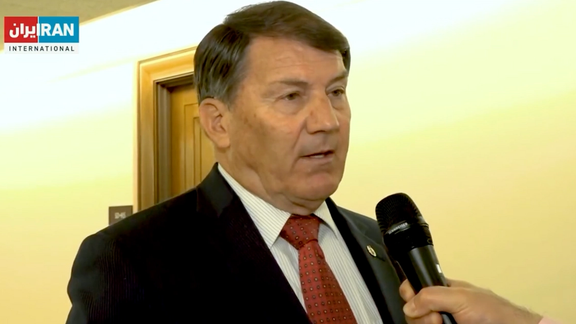
A number of US lawmakers told Iran International that the Islamic Republic’s removal of the UN nuclear watchdog's surveillance cameras shows Iran’s intentions are not peaceful.

A number of US lawmakers told Iran International that the Islamic Republic’s removal of the UN nuclear watchdog's surveillance cameras shows Iran’s intentions are not peaceful.
Republican Senator Mike Rounds from South Dakota said on Wednesday that “they have intents other than peaceful desires with regards to nuclear weapons. They have clearly been on the road to developing a nuclear weapon from day one.”
Highlighting that Israel is at risk of attacks by Iran, Rounds said the US has done “hopefully” its best to limit the Islamic Republic’s ability to get a nuclear weapon.
Criticizing the Biden administration's Iran policy, he said that “when you move from one admin to another you have to have a consistent policy.”
He added that he had disagreed in the past and still disagrees with “the proposed settlements between the US and Iran."
Indiana’s Republican Senator Todd Young said the path Iran is pursuing is going to make the country even more isolated, noting, “This is not going to any place good for Iran's leaders. They want to continue to be isolated by the international community.”
Referring to the recent anti-government protests across the country, he said that “If they want to continue to hurt their people who have recently been rising up against their leadership because of their economic circumstances, then they're doing the right thing. If instead, they would like to enjoy prosperity and opportunity for their people and longer-term security, they're going to need to abide by the terms in the spirit of IAEA mandates to go in and look at all the facilities to ensure Iran is not trying to develop nuclear weapons."
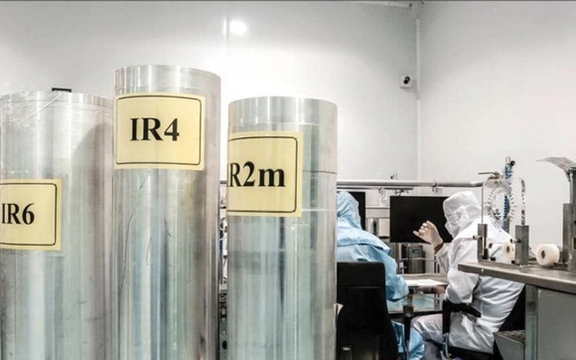
Sources say Iran will speed up installation of advanced uranium enrichment machines after a resolution at a UN nuclear watchdog meeting criticizing Iran.
The semi-official ISNA news website on Thursday quoted an informed source that in reaction to the resolution, Tehran would speed up production and installation of IR-6, IR-4 and IR-2 centrifuge machines. On Wednesday, Iran had also announced it was disconnecting two monitoring devices installed by the UN’s International Atomic Energy Agency (IAEA), anticipating the passage of the resolution.
ISNA also reported that Tehran has informed the IAEA about its decisions.
However, the United States, its European allies, Israel and other countries expressed satisfaction at the overwhelming passage of the resolution on Wednesday.
“We, the Governments of France, Germany, the United Kingdom, and the United States, welcome the IAEA Board of Governors’ adoption of a resolution responding to Iran’s insufficient cooperation with the IAEA…” a joint statement said after the vote.
Russia and China, the Islamic Republic’s allies, were isolated in the June 8 meeting of the IAEA Board of Governors.
Of 35 members states on the board, 30 voted in favor of the resolution sponsored by the ‘E3’ (France, Germany, the United Kingdom) and the United States. India, Libya and Pakistan abstained, while Russia and China voted against.
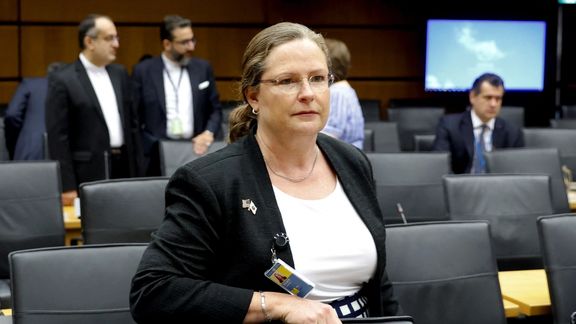
“The overwhelming majority vote at the IAEA Board of Governors today sends an unambiguous message to Iran that it must meet its safeguards obligations and provide technically credible clarifications on outstanding safeguards issues,” the joint statement added.
Iran’s foreign ministry spokesman reacted swiftly by condemning the resolution.
Israeli officials, who had campaigned to highlight Tehran’s lack of cooperation with the IAEA, expressed their satisfaction with the outcome. “In addition to condemnation, the international community must take concrete steps,” defense minister Benny Gantz tweeted, adding that every monitoring device “that is turned off should be met with diplomatic and economic sanctions.”
The resolution called on Iran to engage with the IAEA without delay and expressed “profound concern” at Iran’s failure to satisfy the agency over traces of uranium found at three undeclared sites and highlighted last week in a report from IAEA director-general Rafael Mariano Grossi.
The resolution comes with year-long talks paused since March between Iran and six world powers aimed at reviving the 2015 Iran nuclear deal, the JCPOA (Joint Comprehensive Plan of Action), and with continuing preparations in Israel for an attack on Iran’s nuclear sites.
Earlier in the day before the vote, Iran reacted by announcing that it would turn off two monitoring devices installed by the IAEA at its nuclear installations, a decision that the US condemned.
Saudi Arabia’s foreign ministry welcomed the resolution, urging the Islamic Republic to cooperate with the UN nuclear watchdog without any delay. Like Israelis, the Saudis have reason to be concerned with Iran’s nuclear program and supported former US president Donald Trump’s decision to pull out of the Joint Comprehensive Plan of Action or JCPOA.
Riyadh has been concerned with President Joe Biden’s policy of trying to restore the agreement, which would result in sanctions relief for Tehran, its staunch opponent in the region.
The US, however, did not try to show a victory lap. Officials emphasized that they do not want to escalate the situation with Iran and National Security Advisor Jake Sullivan emphasized that the talks aimed at reviving the JCPOA should remain separate from the safeguards and IAEA monitoring issue that brought about the resolution.
However, few believe that the two issues can remain separate and the stalled nuclear talks not to be affected by the turn of events at the IAEA board. Every Iranian retaliation, such as turning off IAEA monitoring equipment, could become an additional complicating factor in the Vienna talks to revive the 2015 nuclear deal.
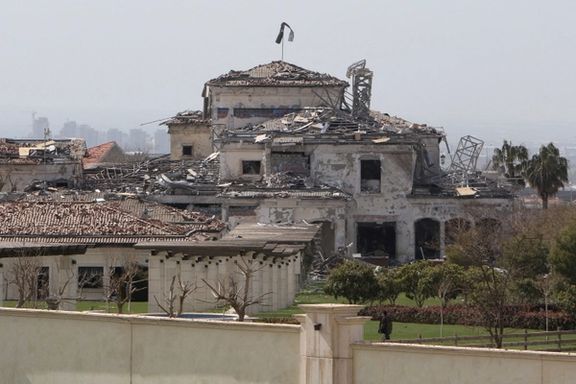
A drone exploded in Iraq's Erbil Wednesday injuring three people and damaging several cars, according to a statement by Kurdistan's counter-terrorism service.
The explosive drone detonated on Pirmam road in Erbil's outskirts at 9:35 p.m. Iraq time, the statement said.
Two security sources, speaking on condition of anonymity, said the drone was shot down.
There was no immediate claim of responsibility.
A security source said earlier that a drone attack targeted the US consulate but did not give further details.
Iraqi Prime Minister Mustafa al-Kadhimi told Kurdish Prime Minister Masoud Barzani in a phone call that Baghdad will cooperate with Erbil to hold the perpetrators accountable, according to a statement.
"Bomb-laden drone hit Erbil-Pirmam road, causing civilian injuries and damage," the UN Assistance Mission for Iraq said on Twitter. "Iraq does not need self-proclaimed armed arbiters. Asserting State authority is essential. If the perpetrators are known, call them out and hold them to account."
Last month, Iran Revolutionary Guards artillery fire hit an area north of Erbil, targeting what Iranian state television described as terrorist bases.
Also, in March the Guards attacked the capital of the Kurdish region with a dozen ballistic missiles in an unprecedented assault on the capital of the autonomous Iraqi Kurdish region that appeared to target the United States and its allies
At least three other attacks have targeted oil refineries in Erbil since the March attack, but no group has claimed responsibility for them.
Report by Reuters
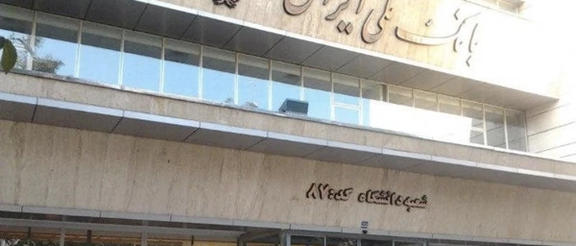
Police resorted to force Wednesday to break up a protest rally by people whose safety deposit boxes were robbed in a bank heist in a central Tehran branch of Iran’s largest bank.
According to footage circulating in social media, security forces fired warning shots and used violence to disperse the gathering of people in front of the robbed branch of the bank near the University of Tehran.
State-owned Bank Melli (National Bank) public relations office announced that the head and deputy head of the branch had been fired "for negligence." But hundreds of people who lost their life savings or important documents demand compensation.
Officials said an investigation was also underway, with several bank employees “under observation” for possible “dereliction of duty.” Three suspects are being interrogated in custody.
The gall of the robbers has fed social media speculation, and even comparisons with famous bank robberies elsewhere in the world, like the 1983 Brink’s Mat heist in the United Kingdom.
Bank Melli issued a statement on Tuesday denying social media reports that 1,000 boxes had been breached, saying thieves had entered the branch and accessed 168 safety deposit boxes. Earlier reports said the number was 200 to 250 boxes.
The exact details of the stolen property and documents have not yet been released, and in the past two days some Bank Melli officials have stated that the bank "has no criminal and legal responsibility for the contents of the boxes."
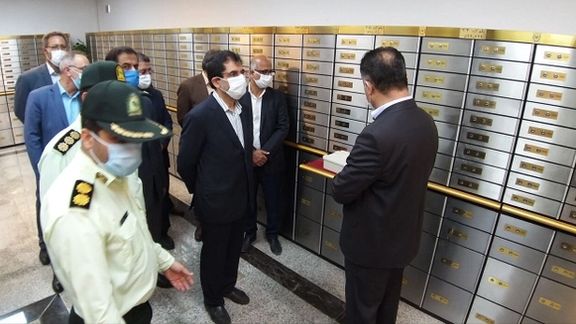
Media and officials in Tehran say it is not clear what the bank robbers stole from the safety deposit boxes, since banks have no information about what people put in these boxes, which are used to safely store personal mementoes, precious foreign currency, and gold coins bought as a hedge against inflation.
It is also not clear if there is any kind of insurance covering losses sustained by customers. One report last year suggested Iranians were keeping $25-$30 billion in cash “at home,” which would include money in bank deposit boxes.
The bank is about half a mile from the headquarters and residence of Supreme Leader Ali Khamenei.
Iran was on a four-day holiday from Thursday to Sunday marking the death anniversary of Ayatollah Ruhollah Khomeini, founder of the Islamic Republic. Apparently, the robbers gained access during the holiday, and it is not clear how long they were inside. They managed to open four sealed doors, reached the coffers, and destroyed security cameras, and took the hard drives, practically leaving no trace behind.
One former bank official told Iranian media that it would next to impossible to break through one of the main safe doors protecting the safe deposit boxes. “One would need days to break through the door with blow torches,” he said. Some doors were protected with electronic passes, codes and alarms.
A series of suspicious events that happened since last week, has led to speculations that the robbers may have sought some specific documents and have come from abroad for the heist.
On Thursday, an Iranian hacktivist group named ‘Uprising till Overthrow' hacked into and deactivated over 5,000 surveillance cameras and 150 websites and online services of Tehran Municipality. The robbery happened in the early hours of Friday. And the passport control system at Tehran's Imam Khomeini International Airport was reportedly hacked on Saturday, stranding passengers for a couple of hours.
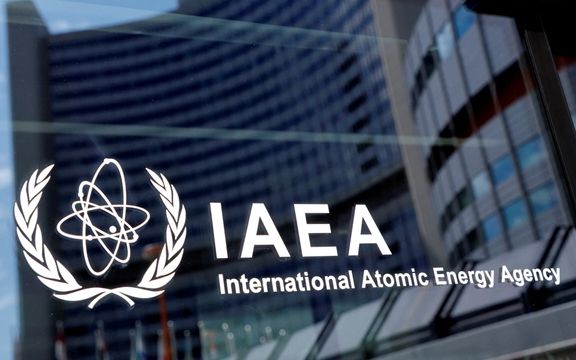
The board of governors of the International Atomic Energy Agency (IAEA) has overwhelmingly passed a resolution critical of Iran’s nuclear cooperation.
Of 35 members states on the board, 30 voted in favor of the resolution sponsored by the ‘E3’ (France, Germany, the United Kingdom) and the United States. India, Libya and Pakistan abstained, while Russia and China voted against.
The resolution called on Iran to engage with the IAEA, the United Nations nuclear watchdog, without delay and expressed “profound concern” at Iran’s failure to satisfy the agency over traces of uranium found at three undeclared sites and highlighted last week in a report from IAEA director-general Rafael Mariano Grossi.
The resolution comes with year-long talks paused since March between Iran and six world powers aimed at reviving the 2015 Iran nuclear deal, the JCPOA (Joint Comprehensive Plan of Action), and with continuing preparations in Israel for an attack on Iran’s nuclear sites.
Iran: ‘Meaningless and disappointing’
Mikhail Ulyanov, Russia’s IAEA ambassador, tweeted that the resolution was “highly questionable under the circumstances” and that countries making up more than half the world’s population had not supported it. Russia had opposed the move, which Moscow argues undermines efforts to salvage the JCPOA.
Fars News agency reported Iran's acting IAEA ambassador, Mohammad-Reza Ghaebi, condemning the resolution and saying Iran would respond appropriately. Ghaebi said that given “exemplary cooperation” between Iran and the agency, this resolution was “meaningless and disappointing.”
Earlier in the day, apparently in response to developments at the IAEA, the Atomic Energy Organization of Iran (AEOI) announced it was turning off two IAEA monitoring systems and associated cameras at two unspecified nuclear sites, which it said were not required by Iran’s commitments as a signatory of the Nuclear Non-Proliferation treaty (NPT).
‘Watered-down’
Critics of the JCPOA in the United States are unlikely to be satisfied that their campaign against the agreement, which the administration of President Joe Biden and the E3 say they want to revive, has yet succeeded. Gabriel Noronha, special advisor on Iran in the administration of President Donald Trump, tweeted that the resolution was “watered-down.”
Kelsey Davenport, director for Nonproliferation Policy at the Washington-based Arms Control Association, tweeted support for the resolution, which she suggested was a “necessary signal to Iran that there are consequences for not cooperating with the IAEA.” But she also argued it should “motivate the US & E3 to get back to the drawing board to find a solution to the impasse over talks to restore the JCPOA.”
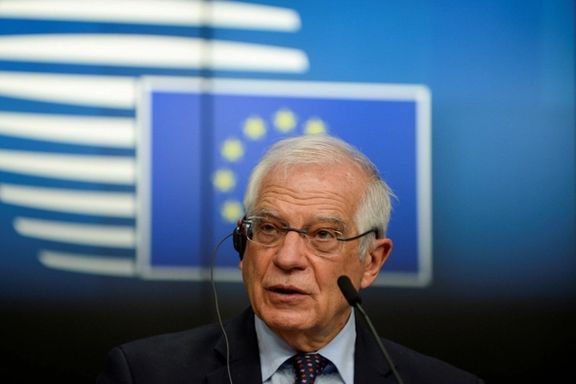
The European Union has issued a statement to be delivered at the board meeting in Vienna of the International Atomic Energy Agency (IAEA).
The statement, released by the press office of the EU delegation to United Nations bodies in Vienna Wednesday afternoon, expressed support for a resolution critical of Iran to be moved by France, Germany, the United Kingdom and the United States.
The EU called for Iran to “co-operate immediately and in full with the IAEA in order for the Agency to be in a position to provide the required assurances that Iran’s nuclear programme [sic] is exclusively peaceful” and praised the “tireless efforts” of IAEA director general Rafael Mariano Grossi to “pursue constructive engagement.”
The resolution is set to criticize Iran over what Grossi has said is its failure to adequately explain uranium traces found at three sites in Iran. To pass it needs a simple majority of the 35 states on the IAEA governing board.But China and Russia have both opposed the move on grounds it could undermine negotiations between Iran and six world powers to revive the 2015 Iran nuclear deal, the JCPOA (Joint Comprehensive Plan of Action).
Neither it is clear what practical effect the resolution passing might have. Iran Wednesday announced it was turning off two IAEA camera systems at unspecified nuclear sites but stressed it would continue to fulfil obligations under the Nuclear Non-Proliferation treaty (NPT).